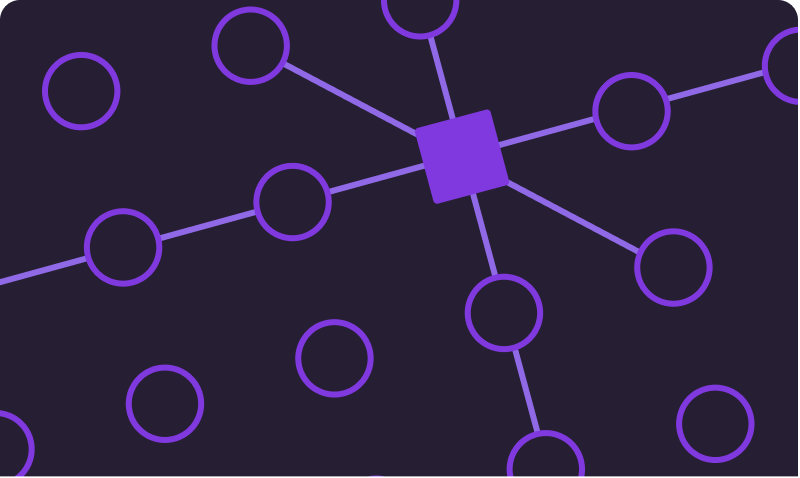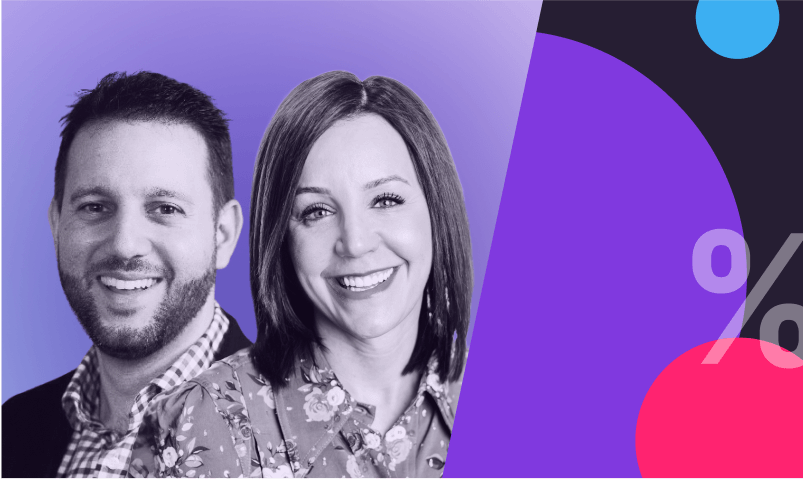Traditional CRM-based forecasting is broken. Here’s why you should shift to AI-powered forecasting
Stay up-to-date with data-backed insights
Thank you for your submission.

Revenue predictability is more important—and harder—than ever.
This is the one-two punch of an uncertain macroeconomic climate. Revenue teams have all the same pressure to make accurate forecasts, but have fewer resources and less reliable historical data to make them.
Part of the problem is that paradigm. The traditional method of forecasting depends on analysis of manually entered CRM data—data that can be rife with biases and out of date.
But the past several years have been so erratic that recent historical data is a weak predictor of future revenue. Deals are more dynamic (and include a shifting array of personas), pipeline is harder to generate, and reps don’t always understand deal quality in real-time. The market is moving so quickly that static data models in unwieldy CRMs don’t offer the insights leaders need to hit today’s targets.
To achieve revenue predictability, especially in an uncertain macroeconomic climate, revenue teams need to stop depending on only second-hand data about the past, and start looking to primary data about the present. They need deeper, AI-driven understandings of every deal in their pipeline, using conversation intelligence to gauge pipeline risk and power more accurate forecasts.
That’s why we just announced new AI-powered enhancements to Gong Forecast, so customers can harness the power of an AI-based forecasting solution that’s built on top of the world’s leading Revenue Intelligence Platform. With prediction models that leverage over 300 buying signals drawn from customer interactions, deal activity, historical deal performance, and enriched contact information, Gong Forecast is able to predict deal outcomes with 20% greater precision than models based solely on CRM and activity data.
Why AI-based forecasting built on revenue intelligence platforms powers more accurate revenue forecasts
1. Intent signals come directly from customer interactions.
During my nearly 30-year career in sales, I’ve used everything out there. And still today, most forecasting solutions on the market offer predictive models based solely on CRM data and sales activity logs.
The power of modern AI-based Revenue Intelligence solutions is not just that they can identify keywords, but that they can identify the intent and context behind keywords.
Gong Forecast identifies key topics—pricing, legal review, competitors—and assesses whether they’re being raised at the right stages of deals. This modern revenue tooling interprets the context and vocabulary that customers and prospects are using, and incorporates that in deal predictions, making it the only solution that’s built customer interaction data into its core predictive engine of forecasting.
2. It enables speedier, more impactful decision-making.
Agile revenue organizations need to empower managers to quickly translate insights into effective execution. Modern revenue tools should boost actionability for managers, allowing them to easily prioritize which deals to focus on and the best strategies to close.
Gong Forecast uses models built by analyzing more than 2.5 billion interactions to more deeply understand what factors truly impact a deal’s likelihood to close – and most importantly, what teams can do to improve that likelihood. These insights empower teams to eliminate risky pipeline from their forecast projections, keep their organization accountable to uphold pipeline health, and convert deals quickly and effectively.
3. It aligns your entire team around your customer.
Forecasting is a team sport. Every team member needs to be looking at the same scoreboard, with the same understanding of overarching revenue objectives, and the same understanding of customers’ needs. Moreover, the “team” extends beyond the traditional conception of revenue stakeholders. It can’t just be on sales and revenue teams, it has to include customer success, support, implementation, partnerships—any org with any impact on the health of customer relationships.
Unfortunately, too many companies rely on second-hand interpretations of what customers need and when they need it. They struggle to make primary customer interaction data accessible in a meaningful way.
We built Gong Forecast with this in mind. Never in my career have I had such easy access to so much fine-grained contextual information. When customer interaction data is baked into your revenue team’s operating rhythm – deal reviews, pipeline inspections, forecast calls, sales analytics, and more – organizations can drive complete accountability by ensuring every team has a crystal clear picture of where the entire organization is positioned (and trending), and the best steps they can take to deliver customer value and meet revenue goals.
There are a lot of open questions about our collective future. Markets remain erratic; work/life arrangements remain in flux; standards of corporate normalcy are more elusive than ever. It’s time revenue teams shift their focus from the past to the present. There’s more data—and insight—available than ever before to companies who know how to find it.
If you’re ready to peek into your revenue future, click here to book a demo of Gong Forecast.



